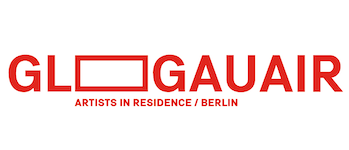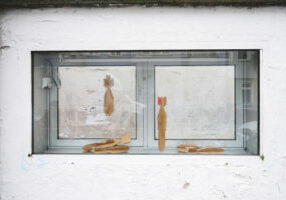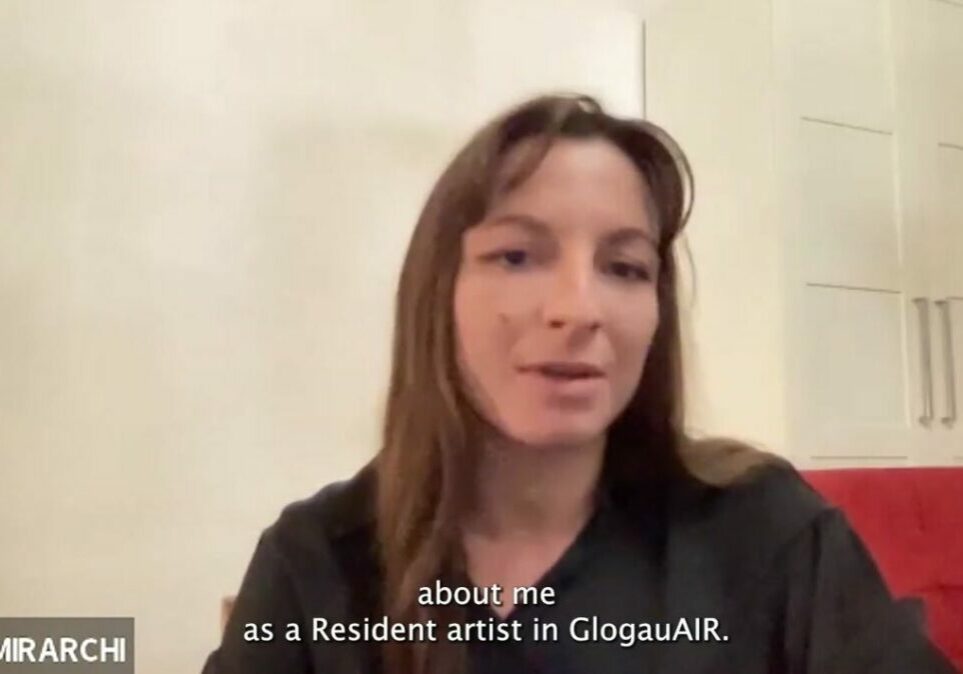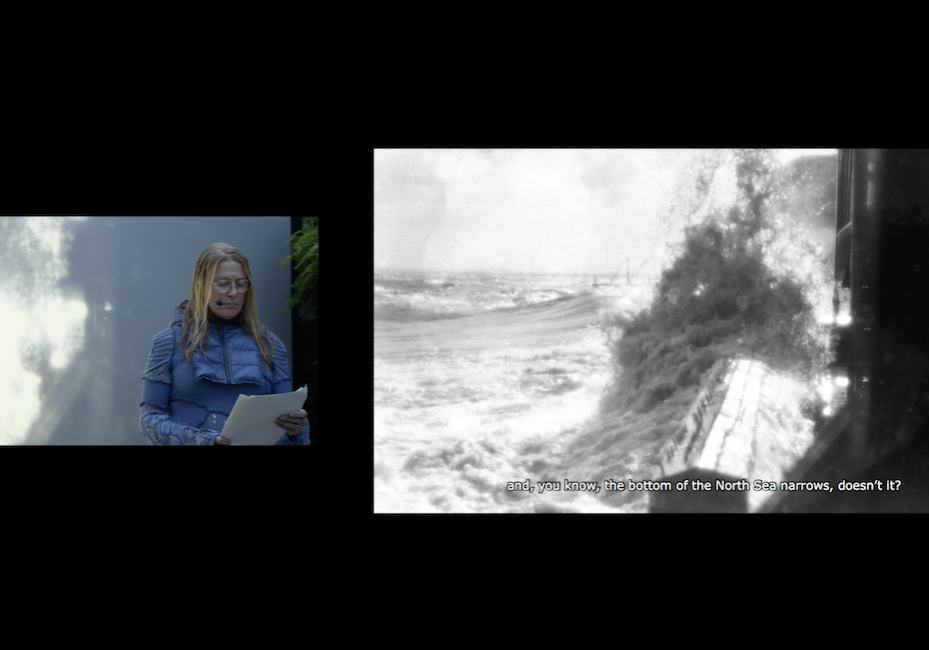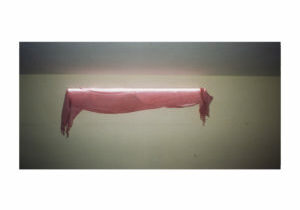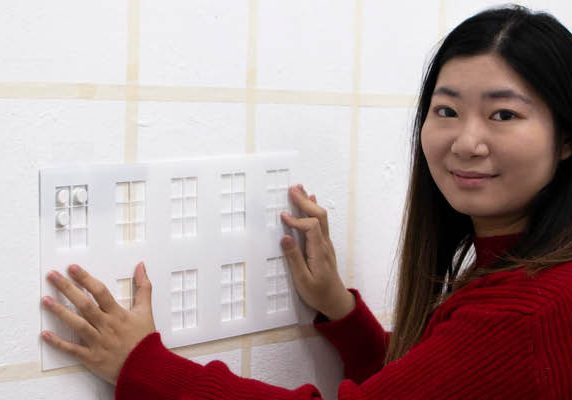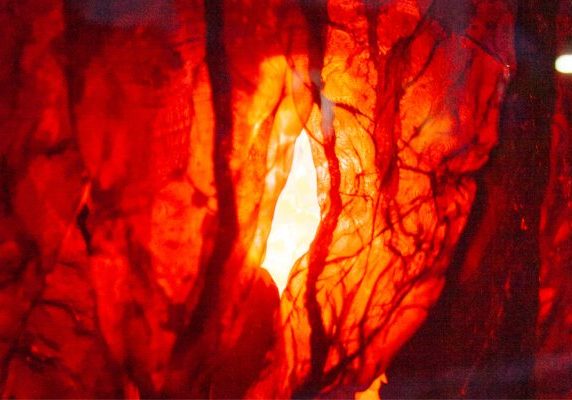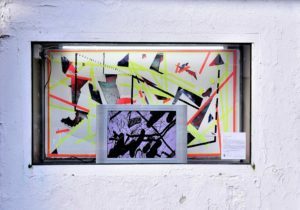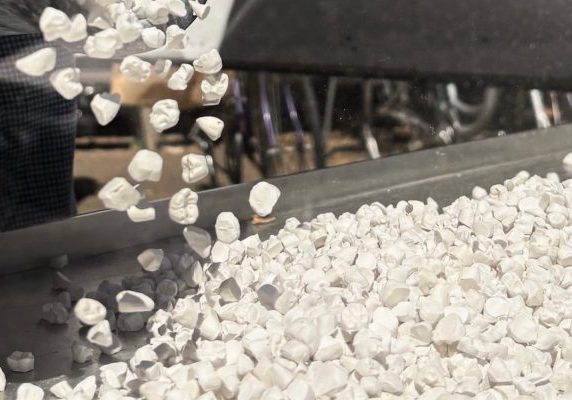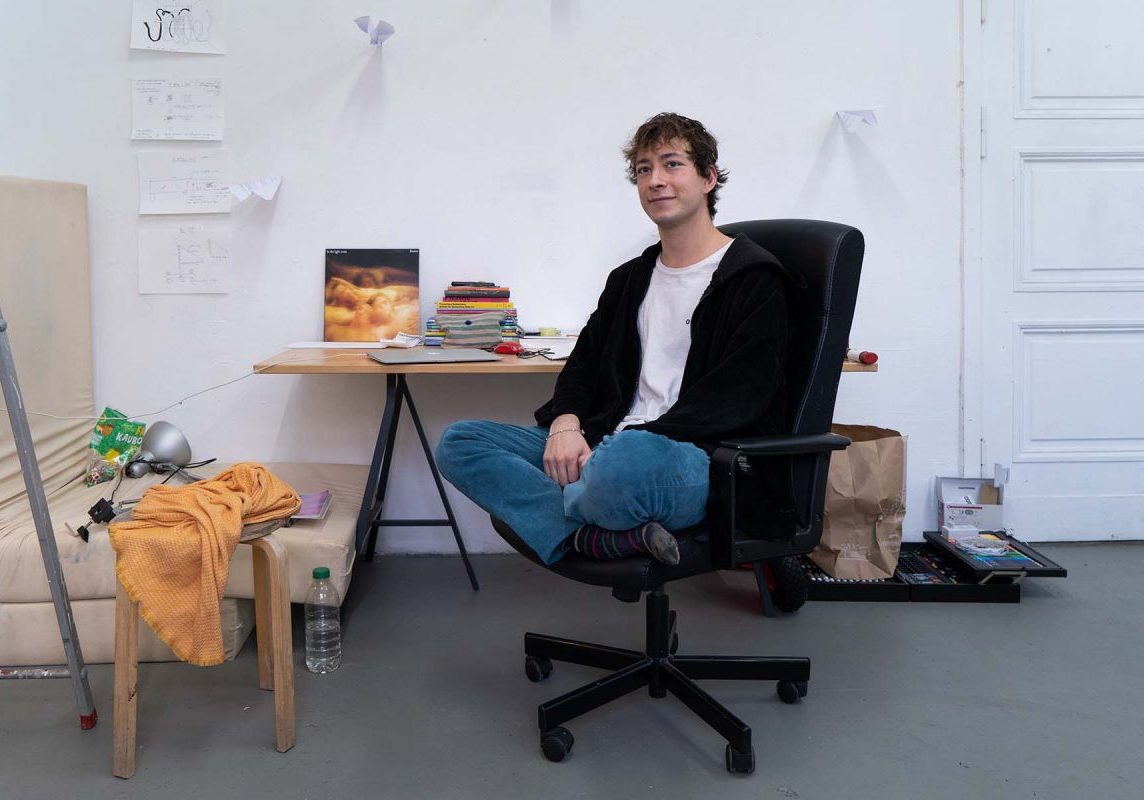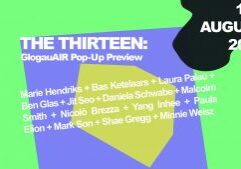Meet the Artist // Natasha Katedralis
Natasha Katedralis is a visual artist based in Vancouver, Canada. Working with digital photography, material forms and often the meeting of the two, Katedralis’ practice is motivated by the perceptual and formal relationships possible within and in-dialogue-with the virtual space of images. Using the language of collage and abstraction, her work prioritizes sensory feeling, an orientation of close-looking and a material reading of the world.
How do you describe your practice as an artist and what inspires your work?
My name is Natasha Katedralis. I’m from Vancouver, Canada. I’m primarily a visual artist. I work with digital photography, physical materials, usually in more of a raw form, and I do a lot of collage, drawing and tracing. Sometimes just in the background of my practice, but sometimes it makes its way into the work as well. I certainly have a lot of interest in material and have always just worked across different mediums.
For the past five years,since the end of my undergrad, I’ve been working and thinking a lot about photography and just images in general. Partially because I’m artistically interested in photography, it’s something I was always interested in since I was a teenager. But I think sociologically, it’s concerning to me or interesting to me just how ubiquitous the tool is in our lives. Everyone has an image-making practice, and it’s just so present in human culture. And I think I’m in, what are the consequences or, the feeling of living in a space that’s occupied by images and communicated through images so intimately.
And then just aesthetically, I’m interested in,what a photograph is and, just when you break it down, how it frames light and shadow and can take this fluidity of life and turn it into a surface, surface of the information and contour that’s ultimately very flat but represents this kind of virtual access to something.
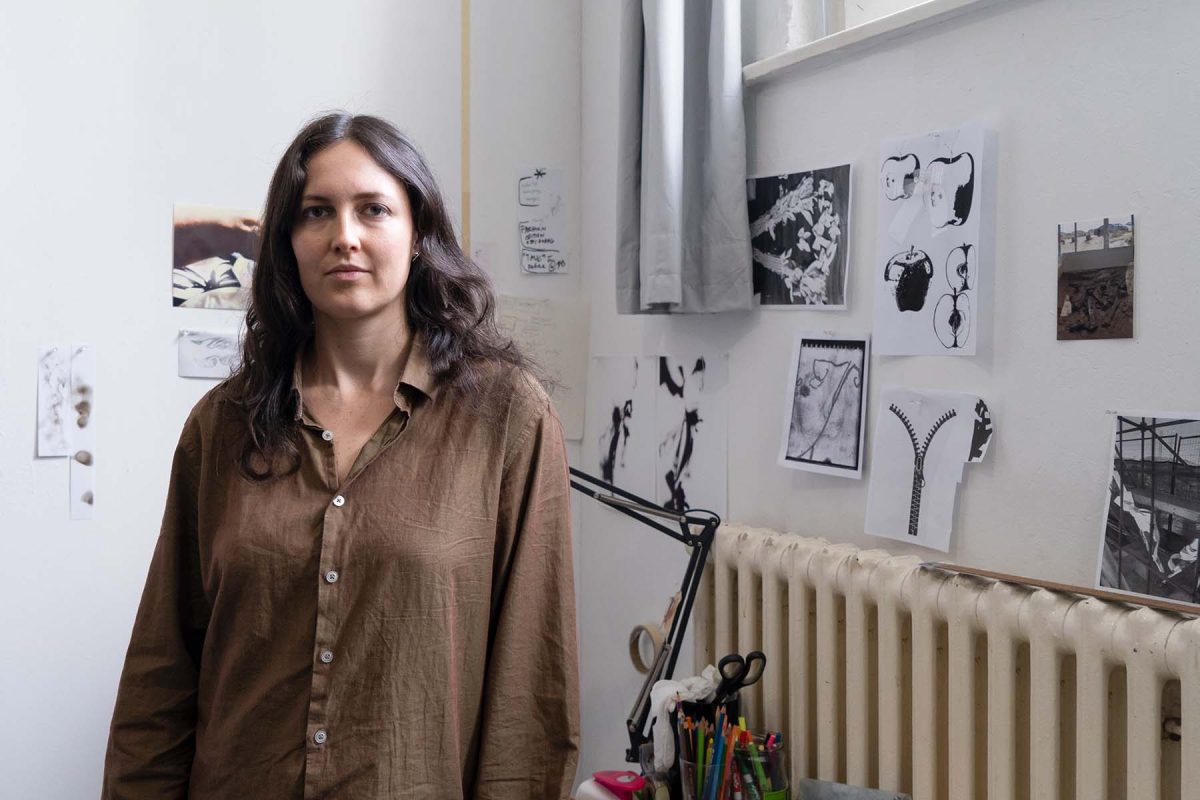
Is there something that inspires your work?
I love art, and I’m always looking at other art and artists, and most of my close friends are artists, they inspire me a lot. I’m a very materially motivated person, and I desire a material experience. I think more and more our lives are becoming less material, and I struggle because somehow I’ve ended up working with digital photography, which is incredibly and paradoxically not very materially generous and quite technical.
So I find this so interesting and working through materials that aren’t photography to try them out and work them more broadly. Maybe it is about a desire to capture things? Because any kind of art practice or writing practice does kind of stem from that impulse to commemorate something or retain it, re-communicate it to others.
How did your artistic journey begin? Do you have any memorable anecdotes or stories that you want to highlight from this artistic journey?
I definitely always was artistic as a kid. My aunt has this particular memory of me as a kid where I was working on a colouring book and I was just so completely absorbed by it. I was hunched over and pursing my lips, I was really serious about what I was doing. I just found that funny because I fully still feel that way in the studio. For me, art is very demanding and at the same time, I find it is a completely ridiculous and childlike activity, very outside of other things an adult might do with their time. I appreciate the openness that it offers.
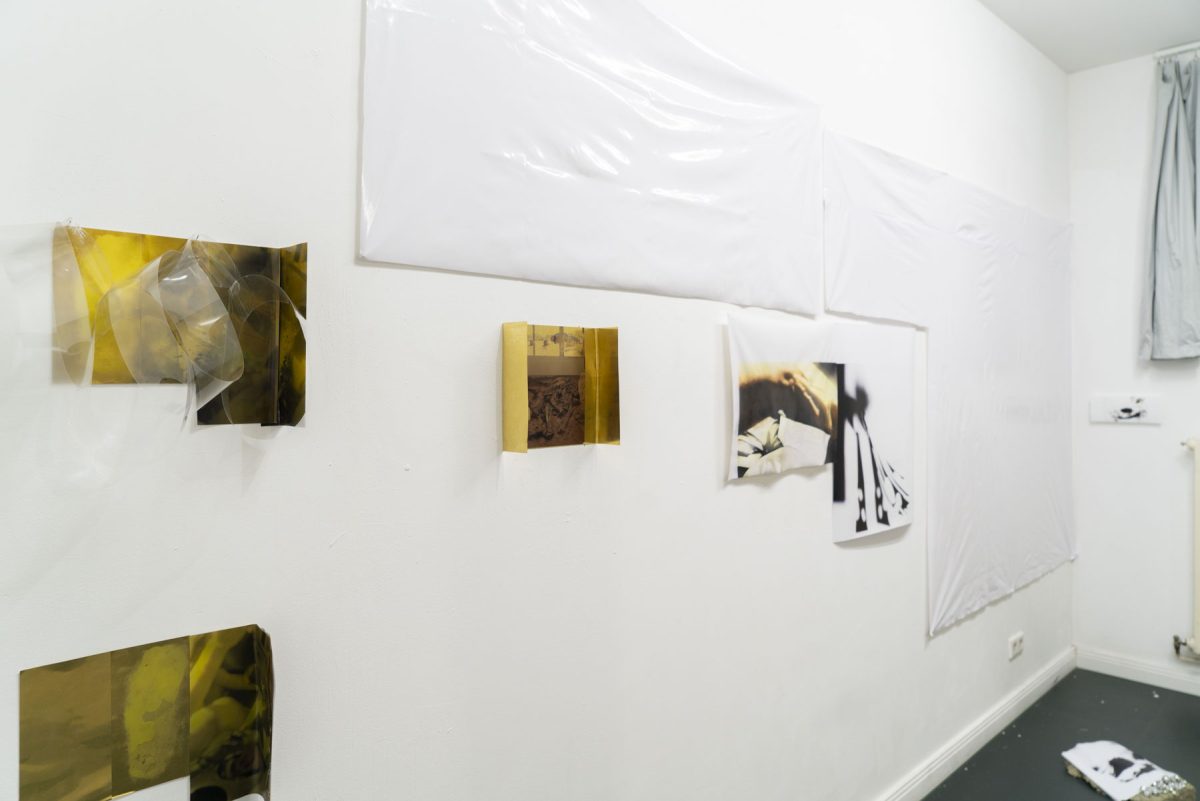
How do you see yourself, like, in the contemporary art world right now? But also, how do you see yourself in the contemporary art world in the future?
Contemporary art was very exciting to me as soon as I was introduced to it. That was before I formally studied art.
I probably was encountering it all the time on Tumblr (haha). And I remember being really fascinated by the whole machine of it when I was in school. But I think that’s a tricky question and I think there’s many different art worlds you can be part of.
I think I’ve been lucky that I didn’t just have some art career happening when I finished school. I moved to this rural place and fully isolated myself, even of an artistic community. I needed time to figure out how art was going to be in my life. I’m really thankful now that I had so much time just to deal with art in the privacy of my life. Careers, your resume and the stuff that goes on, can come and go, but if you want to do art, you really must have some relationship to it that’s really beyond all that.
I think real art has to come from a place that exceeds society or whatever cultural paradigm you might be living in. So if you’re fixated or so caught up in a contemporary art discourse or just what’s going on in society, you are probably just going to burn out like everybody else, to be honest. An artist has to have tools to create some space between themself and the world so that something truly new can come through them.
The art that I love shows me something that is beyond what I experience in the regular world. And seeing that, seeing possibility even if it’s just an aesthetic experience, it shows you that a different (real) world is possible. And that’s what is important and what anyone needs in life.
Does the city of Berlin and the residency have an influence on your production?
My intention on coming here was pursuing some time off and space to really go into art making and figure out what that feels like. It’s an immense privilege and it’s been a really generous experience for me to be able to carry a thought or an activity from day to day and to get things coming out from that.
At the same time I love all the museums and galleries and there’s so much here, but I appreciate it in any big city. It is about being able to go to those spaces and you can just be in a completely quiet room and look at something, which, to me, is still very sacred.
What influenced your decision to come to GlogauAIR?
Sometimes fate plays a role in things. I kind of just followed the hints from the universe. Before this I was being really pragmatic in my daily life but I realised that the deadline for this residency was the same deadline to ask for the grant and, that to me, was enough of a sign.
I think this residency, it’s in a really good location and this building has quite an interesting history of it. It’s really fun being on the third floor because we’re in the attic here. Coming from North America, being in a building that’s, like, 200 years old is a completely novel experience. You just don’t have that.
What are your plans afterwards?
Ater the residency, I’ll finish here at the end of March and then in the beginning of May I have a solo show in Toronto. All my efforts here are going towards that.

